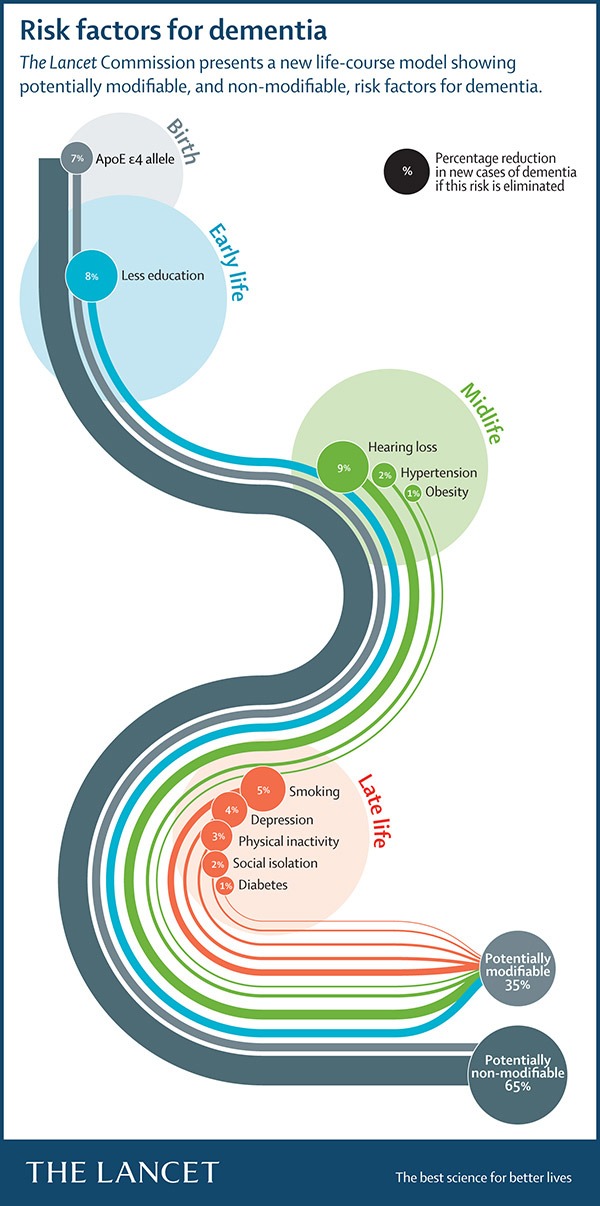First, do no harm? Common anticholinergic meds seen to increase dementia risk in older patients

Commonly Prescribed Meds Could Raise Dementia Risk (WebMD):
“Doctors often prescribe anticholinergic drugs for a variety of ills. But a new study suggests they may increase the risk of dementia in older patients.
These medicines include everything from Benadryl (diphenhydramine) to certain antipsychotics and Parkinson’s meds. They’re used to treat a wide range of other conditions, including depression, chronic obstructive pulmonary disease, overactive bladder, allergies, and gastrointestinal disorders.
Anticholinergic drugs help contract and relax muscles, and work by blocking acetylcholine, a chemical that transmits messages in the nervous system … the new British study found that people aged 55 and older who took strong anticholinergic medications daily for three years or more had a 50% increased risk of dementia … Overall, they study found an increased risk of dementia among those who took anticholinergic drugs. After accounting for other risk factors for dementia, the researchers concluded that strong anticholinergic meds were associated with an increased risk of dementia.”
The Study:
Anticholinergic Drug Exposure and the Risk of Dementia (JAMA Internal Medicine). From the Abstract:
- Importance: Anticholinergic medicines have short-term cognitive adverse effects, but it is uncertain whether long-term use of these drugs is associated with an increased risk of dementia.
- Objective: To assess associations between anticholinergic drug treatments and risk of dementia in persons 55 years or older.
- Exposures: The primary exposure was the total standardized daily doses (TSDDs) of anticholinergic drugs prescribed in the 1 to 11 years prior to the date of diagnosis of dementia or equivalent date in matched controls (index date).
- Main Outcomes and Measures: Odds ratios (ORs) for dementia associated with cumulative exposure to anticholinergic drugs, adjusted for confounding variables.
- Conclusions and Relevance: Exposure to several types of strong anticholinergic drugs is associated with an increased risk of dementia. These findings highlight the importance of reducing exposure to anticholinergic drugs in middle-aged and older people.
The Study in Context:
- Study: 46.7 million Americans have Alzheimer’s Disease brain pathology today, so it’s urgent to prevent or at least delay progression to clinical disease
- From Anti-Alzheimer’s ‘Magic Bullets’ to True Brain Health
- Solving the Brain Fitness Puzzle Is the Key to Self-Empowered Aging
- Report: 35% of worldwide dementia cases could be prevented by modifying these 9 modifiable risk factors



